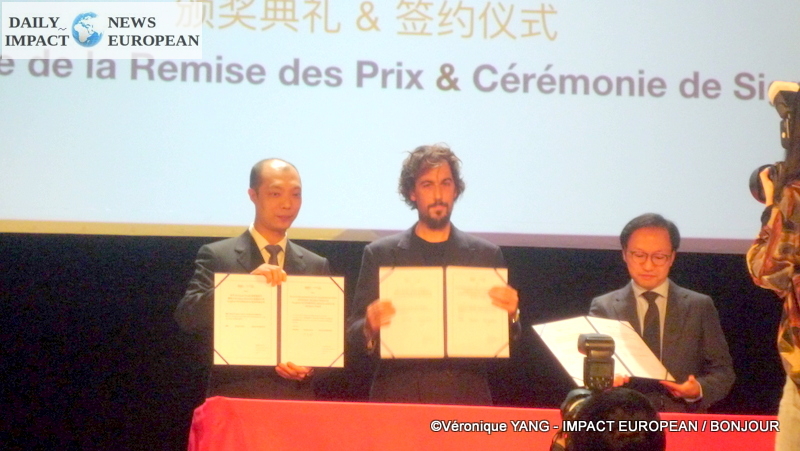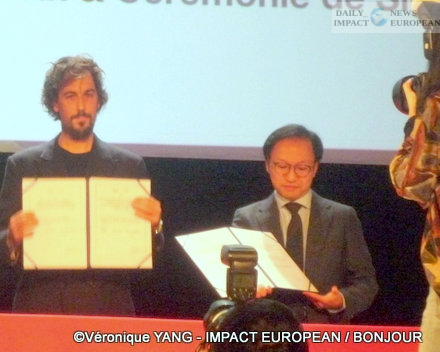In April 2020, China was the second economic power after the United States. This situation generated a trade war between the 2 countries. The imposition of customs surcharges on imports (aluminum, steel or solar panels …) by Donald Trump was one of them.
In November 2019, the first case of covid-19 appeared in Wuhan, Hubei province. It then spreads in the country and then in Asia before infecting the whole world. On January 23, the government decided to quarantine the city of Wuhan and then the entire Hubei province. As of that date, China had 555 reported cases of coronavirus and 17 deaths.
China experienced a period of recession during the first quarter of 2020 (-6.8%) following the pandemic. However, it is the only large economy to post growth, estimated at 1.9% by the IMF. Its market share in world trade has increased thanks to exports of medical products and telecommuting equipment.
Covid-19 and the economy
In the world, the most affected country becomes the United States. To date, they have 513,508 deaths and 28,708,937 confirmed positive cases. In total, there have been no less than 2.53 million deaths worldwide since the end of December 2019 and more than 115 million sick, especially in the United States, India, Brazil, Russia and the United Kingdom. The pandemic has affected the global economy linked to multilateral trade. In all countries, governments have developed plans calling for the revival of businesses and employees.
In order to fight the virus, a vaccine race has started. At the end of April 2020, the WHO dated 79 searches in progress for a vaccine. Among them, 7 of them were in the clinical phase (human trials to verify side effects. China then proposed 3 projects: Sinovac, CanSino Biological and Sinopharm (Beijing Institute of Biological Products, in association with the Wuhan Institute). Other countries are entering the race such as Russia (Spountnik V / Gamaleïa), the United States (Moderna / NIH / Barda, Johnson & Johnson and Pfizer / BioNtech in collaboration with Germany), the Sweden and Great Britain (AstraZeneca / Oxford / Barda), France (Sanofi / GSK / Barda) or India (Covaxin-BBV152). After the 3 phases of clinical trials and approval, the laboratories put the vaccines ( in the market for a major global vaccination campaign.
Vaccines and the economy
The Covid-19 pandemic has created an unprecedented economic crisis. States have resumed their role as has been noted during the various recent virtual summits (One Planet Summit, G5Sahel, G7 and G20). At the center of the topics discussed were vaccines, multilateralism and the application of the Covax system. This international program aims to ensure that vaccines are distributed equitably among all nations, rich and poor. Several international organizations have set it up in collaboration with the WHO and the Vaccine Alliance (GAVI). France and China have supported this initiative.
China facing the Covid epidemic
China is a developing country within the WTO, it is nonetheless a great economic power. For the past 3 decades, the country has experienced a steady rise, a fact which has not escaped the notice of all those who question its status. The country has overtaken the United States (so far the world leader) for its number of billionaires in all sectors (technologies, real estate, cryptocurrencies, agro-food, etc.). The country is also the leading e-commerce market in the world with 1.345 billion euros in sales in 2019, far ahead of the United States (478 billion euros).
If China is a pioneering country in terms of innovation, particularly based on the west coast, it is nonetheless an agricultural country with its millions of farmers gathered in the countryside. In 2015, 1% of its population controlled nearly a third of the country’s total wealth.
With the pandemic, the country’s economy has been weakened by the shutdown of businesses and trade following the strict containment and quarantine policy applied.
Second quarter 2020
Thanks to targeted measures, activity has gradually resumed. Despite sluggish consumption, the second quarter of 2020 saw a rebound of 3.2% compared to the same period of 2019, after a drop in GDP of 6.8% in the first three months of the year. The recovery is linked to significant investments since August 2020, the automotive industry and luxury goods are the most significant sectors. We also noted an increase in retail sales of 0.5% compared to August 2019.
Golden week (October 2020)
If the Chinese could not celebrate the New Year in February, they were able to celebrate the National Day in October. Despite mixed figures before a return to normal, 45% of them were able to travel and spend nearly 58.8 billion euros during the holiday week. However, there was a decrease of 21% for travel and 30% for spending compared to 2019. Nevertheless, a strong increase since May 1 when the loss of spending reached 60% compared to 2019. Travel to the foreigner and the 2 weeks of quarantine to return, being responsible, without forgetting the losses linked to the sharp drops in exports, an important factor in the country’s economy.
The pandemic has accelerated e-commerce nationally and internationally. The government favors the actors, via the digital Silk Roads.
Stimulus plan to avoid bankruptcies and job losses
In March 2020, Beijing was planning a stimulus plan and a review of the growth target. It was absolutely necessary to avoid cascading bankruptcies and an explosion of unemployment. In fact, in February, nearly 5 million people had lost their jobs and 460,000 SMEs had closed. As a result, spending and savings had fallen.
In 2017, the country launched a development plan for AI. The aim was to become the leader in this field by 2030.
The support plan will help the country’s economy, for the first time in 40 years. It will stimulate investment in infrastructure through loans from local governments to the tune of 368 billion euros. China has released 131.4 billion euros to help SMEs (60% of GDP). The central bank has lowered interest rates, allowing 52 billion euros to be injected into the economy. Beijing has also provided for a tax exemption for 2 years on the purchase of clean vehicles to support the automotive sector, which has been particularly damaged.
All these measures are far from equaling the European and American plans (2,000 billion dollars for the Americans and nearly 1.100 billion euros for Germany, Europe’s largest economy). The amount of the Japanese plan exceeds him, the 900 billion euros.
The annual session of the Parliament allowed a contribution of 525.6 billion euros to invest in infrastructure.
China and its billionaires
The Covid-19 crisis has impacted the global economy but has also changed consumer habits. Now, despite export difficulties, e-commerce has grown. In China, Alibaba and Tencent have been essential since the start of the crisis for any online activity.
Since the emergence of the coronavirus, China has had 1,056 billionaires (including Hong Kong), including 256 new ones in one year.
Now, Zhong Shanshan, founder of Nongfu Spring, a bottled water giant, takes first place. At the head of 71.3 billion euros, he is also the 6th largest fortune in the world.
Pony Ma, founder of Tencent and its Wechat Pay service, remains in second place with 62.1 billion euros. In one year, his wealth has increased by 70%.
Colin Huang, founder of Pinduoduo is in 3rd position with 57.9 billion euros. A pioneer of digital commerce in rural areas, he is the pioneer of the new Chinese internet.
Jack Ma, founder of Alibaba and Ant Group, first in the ranking since 2018, fell to 4th place with a fortune estimated at 46.7 billion euros.
Zhang Yiming, boss of ByteDance and owner of TikTok, becomes 5th with 45.3 billion euros.
For the first time, China’s biggest fortunes did not come from real estate, which has long been linked to the country’s growth. The pandemic has given the fastest growing medical and retail sectors. Electric cars, e-commerce, blockchain and biotechnology also experienced strong growth last year.
Beijing is the world capital of billionaires (145), it is followed by Shanghai (113) which has overtaken New York.
Regulation of digital commerce
Since their inception nearly 20 years ago, Alibaba and Tencent have spearheaded the Chinese internet. They are diversifying into the various digital services (e-commerce, online finance, streaming, messaging, home meal delivery, video games, etc.). Little by little, the “super-applications” appeared. Today, they are essential for hundreds of millions of Chinese. However, the choices are reduced, the mixing of platforms is not possible.
While the US blocks access to Wall Street to Chinese companies, there is no other way but to go through the 2 “Big Tech”.
In Europe, Brussels has installed a regulation of the digital space for the next decades. On this example, the central regulatory administration of the Chinese market intends to put an end to monopoly abuses. From mid-November, it applied tight control over data collection and use, intensive promotions, livestreams, differential pricing according to the consumer… Most digital companies could lose out on this. like Tencent and Alibaba. Suspected of monopolistic practices, Jack Ma and his group are downgraded.
Takeover of Alibaba and Ant Group
After years of laissez-faire, we are witnessing a takeover by the authorities.
In recent months, after his criticism of banking regulation, the entrepreneur no longer appeared. His stock had fallen by 8% on the Hong Kong Stock Exchange, while he wanted to list his financial subsidiary Ant Group on the stock market.
The state has reframed Alibaba and Ant Group. Alibaba has been investigated for monopoly practices. Ant Group had to transfer all of its activities to a financial holding company with the same obligations as a bank. The group also had to give up its record IPO, depriving Jack Ma of 35 billion euros.
Portrait of the new billionaire n ° 1
Unlike Jack Ma, Zhong Shanshan is a quiet man who is rarely seen. He does not like getting involved in politics, is not part of the Communist Party, and does not mix with his business counterparts. He is nicknamed “The” lone wolf “and his rise is meteoric.
A former house painter and business journalist, this 67-year-old man is different from other Chinese billionaires from real estate or tech. For more than 20 years, he has owned 2 companies that he introduced on the stock market.
The first is Nongfu Spring, the leader in bottled mineral water in China (27% of the market). It has diversified into teas, coffees, fruit juices, rice alcohol and vegetable yogurt.
The second is Beijing Wantai Biological Pharmacy, a specialist in diagnostic tests (syphilis and tuberculosis. Acquired in 2001, the group is now working on Covid tests and the development of a vaccine against the virus.
What growth for 2021?
On December 30, 2020, the EU and China reached an agreement to allow better access for European investments to the Chinese market.
On March 5, Chinese Premier Li Keqiang announced a goal of increasing its gross domestic product (GDP) to more than 6%.


More Stories
METAL D’ALCOVE, the workshop of Eric KATZ, lighting sculptor in Montmartre
Paris Marathon 2024: Victory for Ethiopians at the Paris marathon
Gelsomina